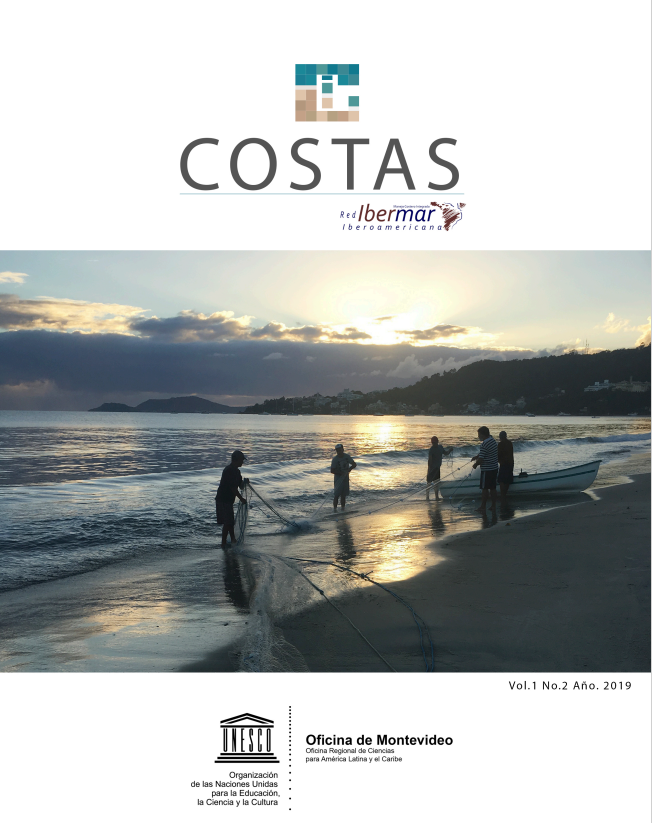MESCLING METHODOLOGIES FOR THE ANALYSIS OF GOVERNANCE IN CONSERVATION UNITS

Info
Abstract
The governance system of a particular Conservation Unit must be adapted to the specifics of its historical and social context in order to be able to generate lasting results in terms of conservation. In order to contribute to the improvement of the governance experiences in Conservation Units present in the Coastal Zone, different methods of analysis were used that together allowed to understand the main characteristics that make up the governance of these areas. The Environmental Protection Area (EPA) of Lagoa Verde, located in the Coastal Zone of Rio Grande Sul, Brazil was used as a case study. Due to the proximity of urban areas, several uses are opposed to their creation objectives, mainly due to the lack of information of the community, deficiencies in the physical, human and financial structure of the EPA and inertia of the Public Power. In this scenario, the need for solidification of existing governance processes is evident, based on planning, capacity building, information, education, transparency and community involvement in decision making. In this way, this research intends to contribute to the development of good governance in the Lagoa Verde EPA, from a systemic perspective on the historical, cultural, economic, political and environmental aspects that permeate it. To do so, we used data from bibliographical and documentary researches, field trips, semi-structured interviews and face-toface observation in the Management Council.
Keywords
Supporting Agencies
How to Cite
License

This work is licensed under a Creative Commons Attribution-NonCommercial-NoDerivatives 4.0 International License.
References
ABRAHÃO, G.; ASMUS, M. Sistema de governança em Unidades de Conservação. Revista Desenvolvimento e Meio Ambiente, v. 44, p.104-117, 2017.
ASMUS, M. L. et al. Gestão Costeira no Brasil: Instrumentos, fragilidades e potencialidades. Revista de Gestão Costeira Integrada, v. 4, p. 52-57, 2006.
ASMUS, M. L. et al. Simples para ser útil: base ecossistêmica para o gerenciamento costeiro. Revista Desenvolvimento e Meio Ambiente, v. 44, p. 4-19, 2018.
BARRAGÁN, J. Las áreas litorales de España: Del análisis geográfico a la gestión integrada. Barcelona: Editorial Ariel S.A., 214 p., 2004.
BARRAGÁN, J. M. Política, gestión y litoral: una nueva visión de la Gestión Integrada de Áreas Litorales. p. 686, 2014.
BEHLING, G. M.; ASMUS, M. L. Refletindo o processo de criação da APA da Lagoa Verde pelo olhar da educação ambiental. Programa de Pós-Graduação em Educação Ambiental, v. Mestrado, p. 129, 2007.
BORRINI-FEYERABEND, G. Governance of Protected Areas. Policy Matters, n. 12, p. 1–16, 2003.
BRASIL. Lei no 7.661, de 16 de maio de 1988. Institui o Plano Nacional de Gerenciamento Costeiro e dá outras providências.
BRASIL. Lei nº 9.985, de 18 de julho de 2000. Institui o Sistema Nacional de Unidades de Conservação – SNUC.
CICIN-SAIN, B.; KNECHT, R. Integrated Coastal Management: Concepts and Practices. Island Press, Washington, D.C., P.517, 1998.
COSTA, J.; ASMUS, M. Base ecossistêmica da atividade pesqueira artesanal: estudo de caso no baixo estuário da Lagoa dos Patos (BELP), RS, Brasil. Revista Desenvolvimento e Meio Ambiente, v. 44p. 51-75, 2018.
DIEDERICHSEN, S. D. et al. Gestão costeira no município de Florianópolis, SC, Brasil: Um diagnóstico. Revista de Gestão Costeira Integrada, v. 13, n. 4, p. 499–512, 2013.
EEA. Environmental indicators : Typology and overview. European Environment Agency, v. 25, n. 25, p. 19, 1999.
FONTAINE, G. et al. Experiencias recientes y retos para las políticas ambientales en América Latina. In: Políticas ambientales y gobernabilidad en América Latina. p. 9–19, 2006.
GARCÍA-ONETTI, J.; SCHERER, M. E. G.; BARRAGÁN, J. M. Integrated and ecosystemic approaches for bridging the gap between environmental management and port management. Journal of Environmental Management, v. 206, p. 615–624, 2018.
HEIN; GROOT, D. Challenges in integrating the concept of ecosystem services and values in landscape planning, management and decision making. Ecological Complexity, n. 7, p. 260–272, 2010.
HERNANDEZ, A. D. O. a Governança da Água em Bacias Hidrográficas : Um Estudo dos Modelos de Gestão Adotados No Brasil E No. p. 1–20, 2008.
IUCN. Governança de Áreas Protegidas: da compreensão à ação. Gland, Suiça, 2013.
JACOBI, P. R.; SINISGALLI, P. A. DE A. Governança ambiental e economia verde. Revista Ciência & Saúde Coletiva, v. 17, n. 6, p. 1469–1478, 2012.
KRUEGER, T. et al. The role of expert opinion in environmental modelling. Environmental Modelling and Software, v. 36, p. 4–18, 2012.
LOUREIRO, C. F. B.; AZAZIEL, M.; FRANCA, N. Educação ambiental e gestão participativa em unidades de conservação. p. 44, 2003.
MMA. O desafio de garantir participação no complexo universo da gestão 3. Série Educação Ambiental E Comunicação Em Unidades De Conservação, p. 66, 2015.
SCHERER, M. E. G.; ASMUS, M. L. Ecosystem-Based Knowledge and Management as a tool for Integrated Coastal and Ocean Management: A Brazilian Initiative. Journal of Coastal Research, v. 75, n. sp1, p. 690–694, 2016.
SCHERER, M., SANCHES, M., & NEGREIROS, D. H. Gestão das Zonas Costeiras e as Políticas Públicas no Brasil: um diagnóstico. In: Manejo Costero Integrado y Política Pública en Iberoamérica: Un diagnóstico. Necesidad de Cambio. Cádiz, Espanha, p. 291–330, 2009.
SZLAFSTEIN, C. F. Indefinições e obstáculos no gerenciamento da Zona Costeira do Estado do Pará. Revista da Gestão Costeira Integrada, v. 9, n. 2, p. 47–58, 2009.
VINICIUS, C. et al. Análise da paisagem na Lagoa Verde: Proposta para readequação da unidade de conservação da Lagoa Verde no município do Rio Grande, Brasil. Revista de la Asociacion Argentina de Ecologia de Paisajes, v. 4, n. 2, p. 119–129, 2013.
VIVACQUA, M.; VIEIRA, P. F. Conflitos socioambientais em Unidades de Conservação. Revista Política & Sociedade, n. 7, p. 139–162, 2005.


